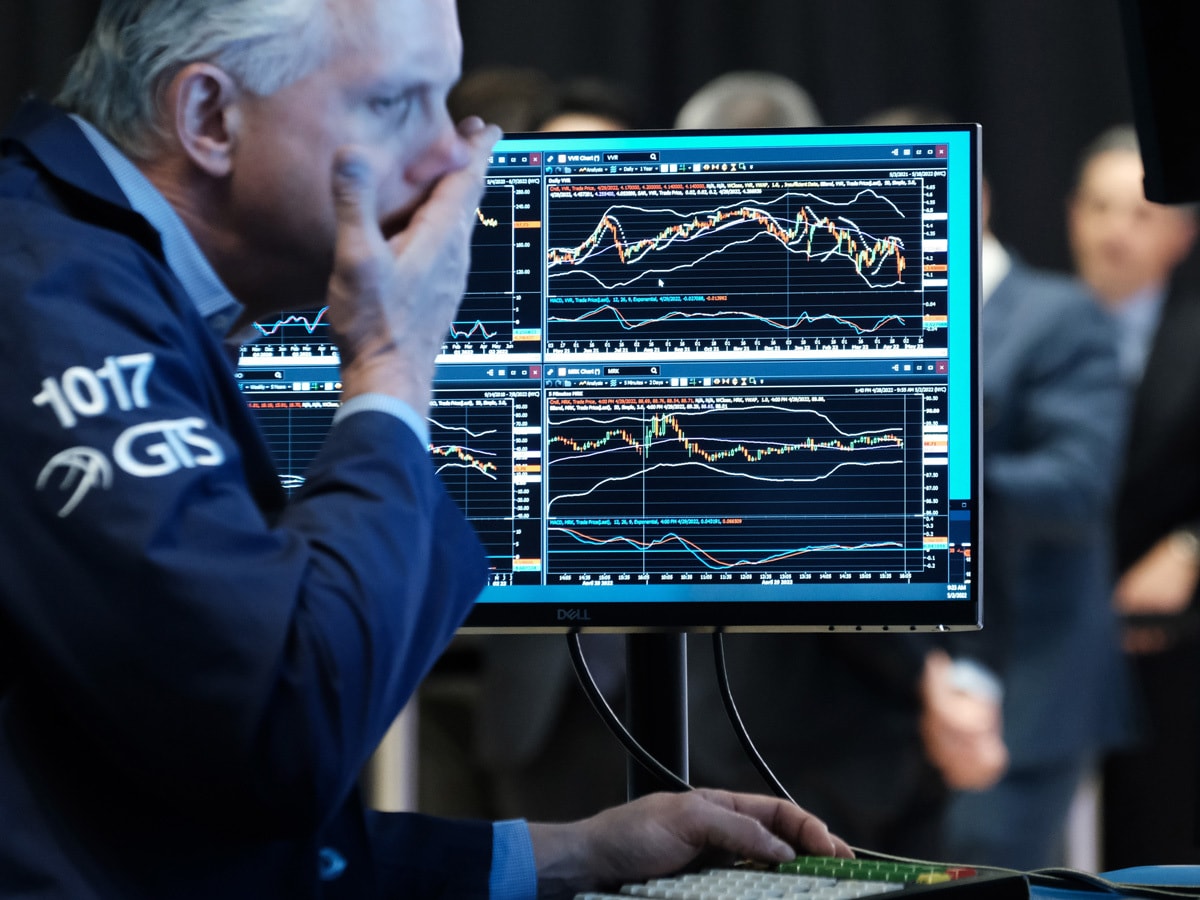High inflation rates and sinking share prices from big tech players meant several leading hedge fund names saw losses in 2022, including Tiger Global and Whale Rock, while ARK’s flagship Innovation Fund also plummeted more than 60%.
- Many tech-focused hedge funds fell by more than 40% in 2022
- Flagship hedge fund managers Tiger Global are pivoting to venture capital to help weather storm
- The Ark Innovation Fund finished 2022 near the bottom of US mutual funds, losing more than 60% over the year
Macro hedge funds that focused on bonds and currencies may have flourished during 2023, but they were a rare winner in an otherwise dire year. In particular, tech equity hedge funds were pummelled, including high-profile names in the sphere, such as Tiger Global.
Tech stocks had previously benefited from a prolonged bull market but suffered a reversal in 2022 as interest rates soared. According to data group HFR, equity funds tumbled by 9.7%, the worst returns since the 2008 financial crisis. Over the last two years, many funds lost 40% or more.
Chase Coleman’s Tiger Global, which benefited from stocks rocketing during the pandemic, dropped 54% in 2022. Whale Rock’s tech-focused fund plunged 42.7%. Skye Global crashed 40.9%, hit by the poor performance of share prices from leading names like Amazon [AMZN], Microsoft [MSFT] and Alphabet [GOOGL].
According to Bloomberg, other big losers included Perceptive and tech-heavy Light Street, run by Glen Kacher, which has lost two-thirds of its value over two years.
Cathie Wood’s flagship tech-focused Ark Innovation Fund sunk by 67% for the year.
Hedge fund managers “buried heads in sand”
The headwinds of 2023 took many fund managers by surprise, with Skye Global founder Jamie Sterne admitting he had miscalculated the “severity of the macro risks” in a letter to investors.
According to Cédric Vuignier, head of liquid alternative managed funds and research at SYZ Capital, many investors “didn’t recognise the prevailing paradigm shift and buried their heads in the sand.”
“Our largest disappointment came from those managers, even well-known ones with long track records, who failed to anticipate the impact of rising rates on growth stocks,” he said.
Many clients suffered significant losses as previously soaring stocks they’d pinned their hopes on, such as Meta [META] and Tesla [TSLA], saw massive falls. In addition, few funds ramped their short bets to take advantage of tumbling share prices.
Tiger Global is among those rethinking their strategies, and the firm has announced it is pivoting away from stocks. The focus will be on its venture capital investment business, which has grown exponentially in the past two years, during which it took on 683 private equity and venture investments.
Light at the end of the tunnel?
Tech-based equity fund performance in 2022 was a sharp contrast from two years earlier. In 2020, Light Street Capital Management recorded an exceptional year following positions on stocks like Amazon [AMZN] and Alibaba [BABA].
However, hedge funds as a whole outperformed the S&P 500 last year, which fell 18%.
According to hedge fund research firm PivotalPath, the average among the 1,157 hedge funds it tracked fell 1% in the year through November. Meanwhile, the S&P 500 dropped by 14% during the same period.
Indeed, according to PivotalPath’s Jon Caplis, the year was not as disastrous as some headlines suggest. He claimed: “Our composite index is the most stable it’s been in years,” and said that recent monthly performance changes remained historically low.
However, according to HFR, hedge fund fees have fallen to their lowest levels since 2008 – perhaps not surprisingly, given current nervousness amongst investors.
Funds in focus: ARK Innovation Fund
Ark’s flagship tech-focused Innovation Fund [ARKK] aims to track the theme of disruptive innovation and has Zoom [ZM] and Tesla among its top holdings. The fund has fallen by 62.8% over the past year.
However, ETFs that track currencies and bonds were a greater point of success for hedge funds in 2022.
The iShares JP Morgan EM Local Currency Bond ETF [LEMB], which follows currencies from China and Poland (its top two holdings, and 14.72% and 4.63% respectively) amongst others, was down 8.9% over the last 12 months to 9 January.
The VanEck J.P. Morgan EM Local Currency Bond UCITS ETF [EMLC], which tracks Brazilian and South African currencies among 309 in total, was down 8.1%. While both saw declines, they still beat the S&P 500’s losses of 16.7% over the same period.
Disclaimer Past performance is not a reliable indicator of future results.
CMC Markets is an execution-only service provider. The material (whether or not it states any opinions) is for general information purposes only, and does not take into account your personal circumstances or objectives. Nothing in this material is (or should be considered to be) financial, investment or other advice on which reliance should be placed. No opinion given in the material constitutes a recommendation by CMC Markets or the author that any particular investment, security, transaction or investment strategy is suitable for any specific person.
The material has not been prepared in accordance with legal requirements designed to promote the independence of investment research. Although we are not specifically prevented from dealing before providing this material, we do not seek to take advantage of the material prior to its dissemination.
CMC Markets does not endorse or offer opinion on the trading strategies used by the author. Their trading strategies do not guarantee any return and CMC Markets shall not be held responsible for any loss that you may incur, either directly or indirectly, arising from any investment based on any information contained herein.
*Tax treatment depends on individual circumstances and can change or may differ in a jurisdiction other than the UK.
Continue reading for FREE
- Includes free newsletter updates, unsubscribe anytime. Privacy policy





